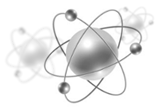
동향
Home > DB > 동향
| Clinical and In Vitro Studies on Impact of High-Dose Etoposide Pharmacokinetics Prior Allogeneic Hematopoietic Stem Cell Transplantation for Childhood Acute Lymphoblastic Leukemia on the Risk of Post-Transplant Leukemia Relapse. | |||
|---|---|---|---|
| 분류 | Pharmacokinetics | 조회 | 1518 |
| 발행년도 | 2015 | 등록일 | 2015-10-09 |
| 출처 | Arch Immunol Ther Exp (Warsz) (바로가기) | ||
|
The impact of etoposide (VP-16) plasma concentrations on the day of allogeneic hematopoietic stem cell transplantation (allo-HSCT) on leukemia-free survival in children with acute lymphoblastic leukemia (ALL) was studied. In addition, the in vitro effects of VP-16 on the lymphocytes proliferation, cytotoxic activity and on Th1/Th2 cytokine responses were assessed. In 31 children undergoing allo-HSCT, VP-16 plasma concentrations were determined up to 120 h after the infusion using the HPLC-UV method. For mentioned in vitro studies, VP-16 plasma concentrations observed on allo-HSCT day were used. In 84 % of children, VP-16 plasma concentrations (0.1-1.5 μg/mL) were quantifiable 72 h after the end of the drug infusion, i.e. when allo-HSCT should be performed. In 20 (65 %) children allo-HSCT was performed 4 days after the end of the drug infusion, and VP-16 was still detectable (0.1-0.9 μg/mL) in plasma of 12 (39 %) of them. Post-transplant ALL relapse occurred in four children, in all of them VP-16 was detectable in plasma (0.1-0.8 μg/mL) on allo-HSCT day, while there was no relapse in children with undetectable VP-16.
(후략)
|
|||
|
|




 이전글
이전글 다음글
다음글